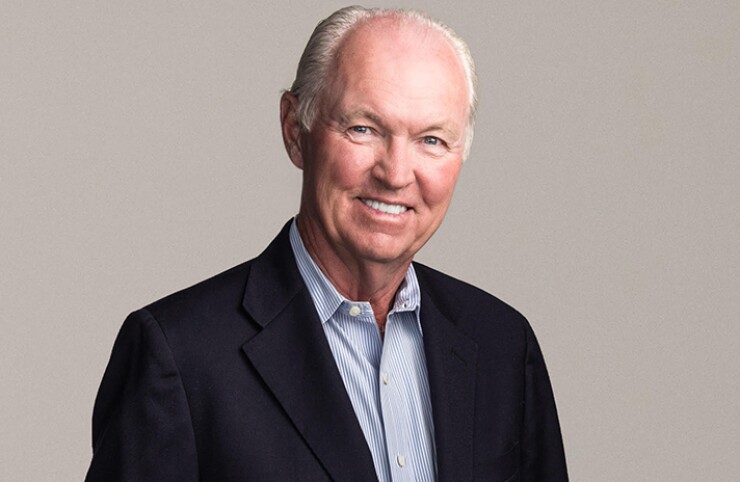The bedrock of PFM, a financial advisory powerhouse in the municipal market, is the idea that the debt issuer needs an advocate, according to F. John White, who served as its CEO for 30 years.
In 1980 when he joined the nascent firm, nobody was at the deal table representing issuers and making sure they received the best price possible for their debt, he recalled.
"The idea of an independent financial advisor who wasn't involved in underwriting at all became our mantra," he said. "We talked to people about that. Three quarters of them thought we were crazy and probably a quarter of them said, 'Gee, that sounds like something that's a good idea.' It was really unique in those days."

While that service was provided to a limited extent at the local level, PFM was able to do it on a national scale, he added. Strategic consulting, asset management, and other services were added during White's tenure.
"A sound strategy and a strong culture helped John to grow PFM from a single office with five employees to becoming the top-ranking and largest independent municipal advisory firm in the nation, with more than 350 employees in 30 offices across the country," PFM CEO Dan Hartman said in his nomination of White for the Hall of Fame.
White's legacy "endures through the countless individuals he had led, mentored and worked alongside," Hartman added.
Currently chairman emeritus, after retiring as CEO at the end of 2011, White said he's "like an advisor on call" for PFM.
"I'll talk to someone whenever I can be helpful," he said. "Once in a while I have an idea people like."
PFM's consulting practice took off in the 1990s, with White leading a team that wrote the original five-year financial plan in 1992 for Philadelphia, which had been placed under state oversight amid a fiscal crisis that led to rating downgrades and market access problems. The city ultimately returned to the bond market after a two-year absence.
"It was a harrowing period that came out okay," White said. "We're really proud to be part of that."
PFM has undertaken similar efforts for other governments, including Washington, D.C. and Miami.
Under White, PFM also branched out into asset management aiding issuers in the investment of their bond proceeds and operating funds, an area he said had been somewhat ignored in the past.
"You want to really maximize how you invest your money," White said. "That idea is as relevant today as it was 30 years ago. We're all very proud of what we've been able to accomplish being a leader in this area."
Before joining PFM, White worked on political campaigns and in local, state, and federal government, including five years handling administrative and legislative matters for then-Congressman William Green, a member of the U.S. House Ways and Means Committee.
He found "the tax stuff didn't really frighten me," which helped him make the transition to public finance after working on Green's successful campaign for Philadelphia mayor in 1979.
"I was always interested in working with the public sector and (PFM) was an opportunity to work with the public sector and be in the private sector at the same time," White said.
In honor of his mother Evelyn, the first female deputy mayor of Philadelphia, White helped establish a scholarship for children of city employees attending William Penn Charter School. At his request, PFM sponsors the F. John White Community and Public Service Scholarship for children of the firm's employees.





